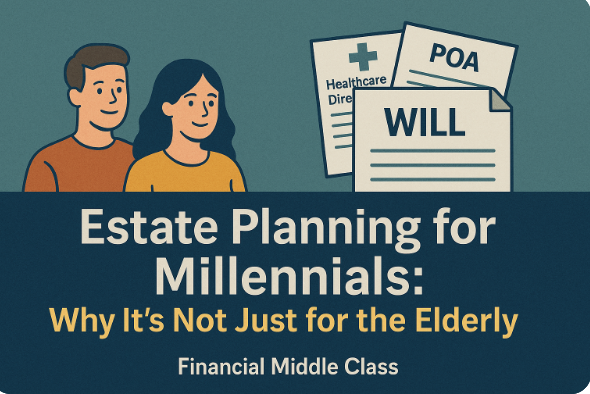If you’re a millennial, chances are you think estate planning is something for your parents or grandparents. After all, you’re still building your career, paying off student loans, maybe saving for a first home. A will? A power of attorney? That feels decades away.
But here’s the truth: estate planning isn’t about age. It’s about being prepared. Whether you’re 28 or 38, married or single, with kids or without, having an estate plan is part of what I call “adulting 2.0” — taking charge of your future in ways that protect you and the people you love.
Why Millennials Can’t Ignore Estate Planning
The millennial generation (born roughly between 1981 and 1996) is juggling more than any generation before them: high student debt, soaring housing costs, and delayed milestones like marriage and children. But that doesn’t mean estate planning can wait.
Consider this:
- Digital assets matter. Your social media, crypto wallets, and online accounts don’t disappear when you do. Who controls them?
- Medical emergencies happen. A health care proxy ensures someone you trust makes decisions if you can’t.
- Children and pets need care. Guardianship arrangements aren’t automatic — without them, the state decides.
Estate planning is less about “when you die” and more about “what happens if life throws you a curveball.”
Step 1: Write a Simple Will
A will doesn’t need to be complicated. For millennials, it often boils down to three things:
- Naming who inherits your assets (yes, even modest ones).
- Assigning guardianship for children (or pets).
- Choosing an executor you trust.
Without a will, state laws decide — and they may not reflect your wishes.
Step 2: Secure a Power of Attorney (POA)
Imagine being in an accident that leaves you unable to pay bills or manage your accounts. With a durable POA, someone you trust can step in and act on your behalf. Without it, your loved ones could face costly court proceedings just to help.
Step 3: Add a Healthcare Directive
A healthcare proxy (or living will) spells out what medical treatments you want — or don’t want — if you can’t communicate. This takes an enormous burden off your family and ensures your values guide your care.
Step 4: Don’t Forget Digital Assets
Unlike your parents, you live a big chunk of life online. Think about:
- Passwords and logins (store them securely).
- Digital wallets or crypto keys.
- Online businesses, blogs, or e-commerce accounts.
Include instructions in your estate plan so these assets don’t vanish or cause legal tangles.
Step 5: Review and Update Regularly
Your 20s and 30s are full of changes — new jobs, relationships, moves. Your estate plan should evolve with you. Revisit it every 2–3 years or after major milestones.
The Bottom Line
Estate planning isn’t just for the elderly — it’s for anyone who wants to protect their wishes, their family, and their digital footprint. Millennials who take action today won’t just secure their assets; they’ll take a powerful step into true financial adulthood.
Related Reads:
How to Minimize Debt Later in Life
Life Insurance and Debt: How to Protect Your Family
Zero-Based Budgeting for Families: Planning Beyond Today
Creating an Emergency Fund in Retirement: Why It’s Essential for Protecting Your Nest Egg
Call-to-Action
Don’t wait until you’re older to make decisions that matter today. Draft a simple will, assign a healthcare proxy, and set up a power of attorney. Your future self — and your loved ones — will thank you.

Pingback: Emergency Fund for Retirees - FMC
Pingback: 4 Things Older Parents Should Know About Family Finance - FMC